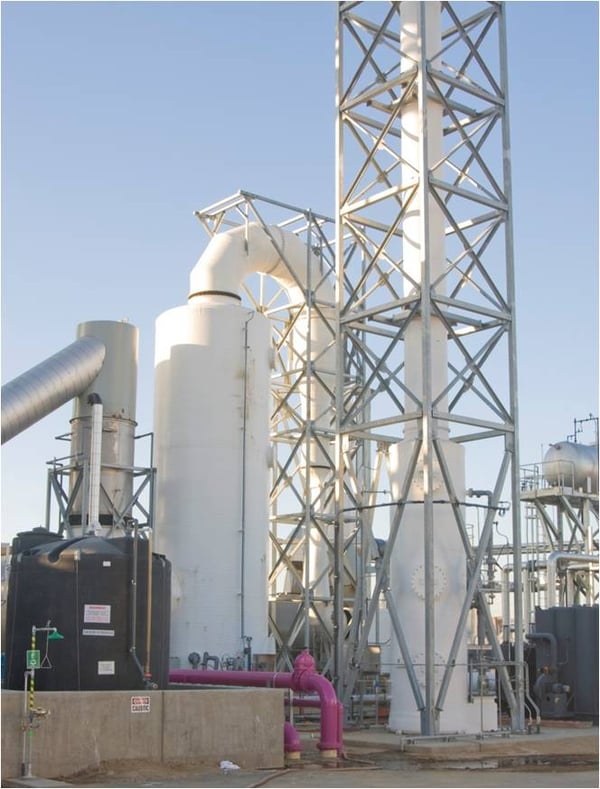Direct Contact Condenser
A direct contact condenser transfers heat from a gas to a liquid. The liquid and gas come in direct contact, which maximizes the thermal efficiency. Direct contact condensers may be spray towers, where liquid is sprayed into a gas stream; packed bed towers, where liquid is sprayed on top of packed media to enhance thermal transfer; or tray towers, where liquid is injected on top of a mass transfer "tray" that contacts the gas with the liquid.
Direct contact condensers (DCCs) have a variety of purposes. They can be used to heat the liquid for heat recovery. The hot liquid can be used to heat rooms, preheat raw materials, or melt solids like ice. DCCs can be used to cool the gas to generate condensate. Condensate can be used to purge a reaction product, such as acids coabsorbed in the DCC, condense a particulate by converting it from a vapor to a liquid or solid, grow particulate by condensing directly on the particulate surface to improve its capture or reclaim water in arid regions. Direct contact condensers also can reduce the gas volume, suppress stack plume, and lower energy requirements.



